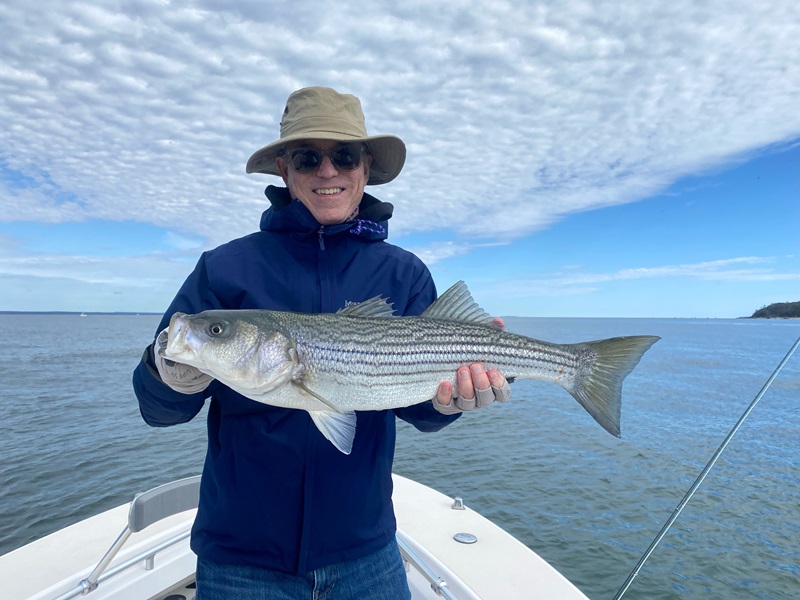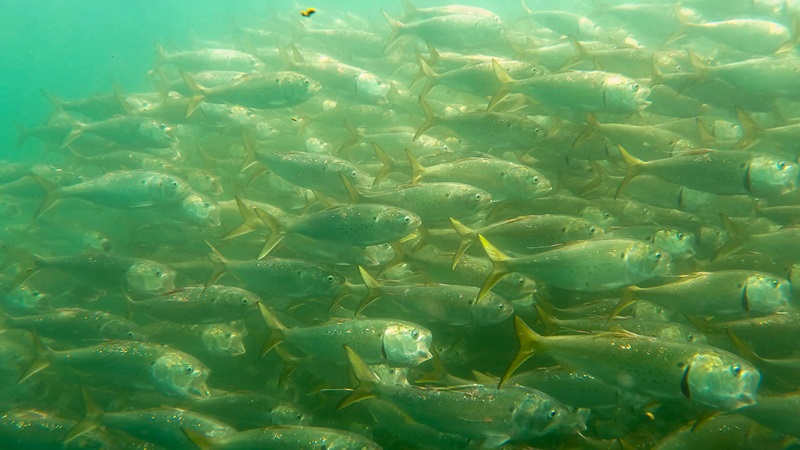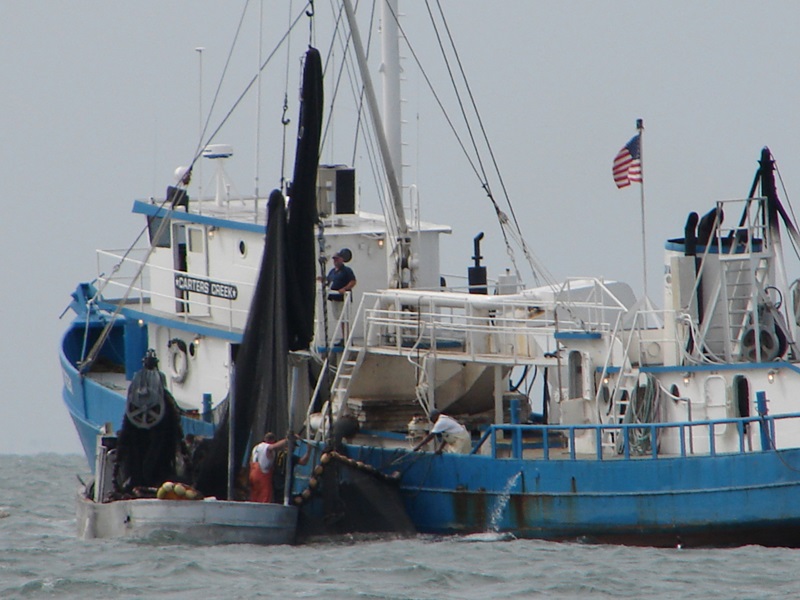Tyler-Nonn-with-steelhead-trout-2-800-Credit-Tyler-Nonn
Do you have any thoughts on this post?
The United States has the greatest conservation system in the world, and hunters and anglers have been the foundation of this system since the late 1800s. Today, by uniting and amplifying the voices of America’s sportsmen and sportswomen in federal law and policy, the TRCP is ensuring that this legacy continues for another 150 years. But the challenges have never been greater.
August is National Make-A-Will Month, and you can help support our mission and Theodore Roosevelt’s vision, by empowering the TRCP to seize opportunities, address threats to conservation, and launch our next chapter of advocacy by leaving a legacy of conservation. Learn more by visiting our planned giving webpage HERE.
We invite you to join donors like Greg Singleton and help guarantee all Americans quality places to hunt and fish—now and forever – by leaving a legacy of conservation.
“I vividly remember days from my childhood when I would leave the house early and head into the woods or out on the water with my dad and granddad. I looked forward to those days more than anything else. As I grew, I saw development take over our beautiful South Carolina coastline and I watched as magnificent wildlife areas disappeared to development. During this time, I realized that if children are to experience the great outdoors and develop a love and respect for these wonderful places, we need to protect it. That’s why I put TRCP in my trust, along with other like-minded organizations devoted to conserving and protecting the outdoors. There’s no better way to get children excited and inspired by the rugged wilderness than by taking them on camping, fishing, and hunting trips on our fabulous public lands. Letting them hear the barred owls, helping them dig up crawdads, and “catching” tadpoles and bringing a few home to turn into frogs, and marveling at the dance of the red-winged blackbirds as thousands fly overhead in their amazing, seemingly choreographed dance of flight was crucial. TRCP ensures public access to our great public lands where kids can do all these things and more. I encourage everyone who has the means to give back to the outdoors by putting TRCP in your will or trust. The nation’s children will be forever grateful.”
Greg Singleton, TRCP donor
For more information about making conservation part of your legacy, please visit Planned Giving | Theodore Roosevelt Conservation Partnership (trcp.org) or contact Josh Walters, TRCP’s director of program development, at (304) 261-4941 or jwalters@trcp.org.

The information stated here is not intended as financial or legal advice. Always consider seeking the advice of your financial or legal advisor.
The TRCP is your resource for all things conservation. In our weekly Roosevelt Report, you’ll receive the latest news on emerging habitat threats, legislation and proposals on the move, public land and waters access solutions we’re spearheading, and opportunities for hunters and anglers to take action. Sign up now.
The Menhaden Management Board (MMB) of the Atlantic States Marine Fisheries Commission voted yesterday to establish a workgroup to consider options for precautionary management of the Chesapeake Bay industrial menhaden fishery, including time and area closures, to account for seabird and fish diet needs at critical points in their life cycles. The workgroup will be organized over the coming weeks and will start the process of thinking through what future management measures for the Bay menhaden fishery might look like, to lower the pressure that ospreys and other menhaden predators are facing in one of America’s most important estuaries.
Menhaden are baitfish that play an essential role in marine food webs, providing a vital food source for not only ospreys, but many larger species like striped bass, redfish, whales, dolphins, and seabirds.

The motion to establish a workgroup, which was unanimously supported by the MMB, was put forward by the Maryland ASMFC delegation’s Allison Colden, who is also Maryland executive director of the Chesapeake Bay Foundation. The group should begin to answer some of the questions that conservation groups have had for years about the menhaden fishery’s impact on the Bay ecosystem, and will propose potential sustainable solutions for the ASMFC to deliberate.
“We’re seeing some major ecological red flags in the Chesapeake Bay,” said Allison Colden, CBF Maryland executive director. “From struggling osprey populations to dismal menhaden bait landings, it’s clear that additional precautions are needed.”

Chesapeake Bay residents and scientists have been sounding the alarm about a lack of menhaden in the Bay leading to lower osprey chick-rearing success. This led to the MMB inviting the U.S. Geological Survey to make a presentation on Aug. 6 to inform the Board about the status of osprey in the Chesapeake Bay, and the problems these birds of prey are currently facing. Data shows that ospreys in some parts of the Bay are particularly reliant on oil-rich menhaden as food for their young, especially in the spring and summer months during chick-rearing season when male ospreys must bring in extra food to feed their mate and offspring. In recent years, the numbers have shown that ospreys in parts of the Bay are unsuccessful in raising enough young each year to sustain stable long-term populations, due in part to a lack of food availability for young chicks.
While the Atlantic menhaden fishery is already managed to account for the diet needs of multiple fish predators, such as striped bass and bluefish, to leave enough forage in the water for those fish to eat, osprey are not explicitly included in that management structure despite their clear reliance on menhaden in their diets. Updated stock assessments will be published in fall 2025, which will essentially model how menhaden have been interacting with the Atlantic ecosystem in recent years, and will help managers set appropriate harvest quotas in future fishing seasons. Unfortunately, those assessment calculations are not detailed enough to determine how the menhaden fishery is impacting the ecosystem in specific zones, such as within the Chesapeake Bay region, where harvest is concentrated.

“Setting specific regulations tailored to regional differences in harvest, based on what we know now, is a way to manage the menhaden fishery in a precautionary manner until the stock assessment science can catch up,” said Jaclyn Higgins, forage fish program manager for the Theodore Roosevelt Conservation Partnership. “We have a wide range of longstanding seabird data that has been collected for decades, which shows us the ebb and flow of osprey populations along the Atlantic. We know that osprey chicks aren’t getting enough to eat in the Chesapeake, and we know they are reliant on menhaden in that important chick-rearing timeframe.”
Higgins says that establishing regulations that leave more menhaden in the water in the Bay at critical times, based on osprey needs and the needs of other Bay predators, is an ideal way to expand upon the ecosystem-based management framework that the ASMFC already uses to manage this iconic forage fish.
“The TRCP is excited to support this movement towards further refining the ecosystem-based management of the Atlantic menhaden fishery,” Higgins said. “Refining the spatial components of the ASMFC’s menhaden management structure will further improve the sustainability of this fishery, and will allow for more predators to have sufficient access to this critical forage species into the future.”
The workgroup expects to present their findings to the MMB at its October 2024 meeting.
For more information about the key role menhaden and other forage fish play in marine ecosystems, visit TRCP’s forage fish recovery page.
Banner image of osprey with menhaden courtesy Chesapeake Bay Program
The board of directors of the Theodore Roosevelt Conservation Partnership (TRCP) is pleased to announce the appointment of Joel Pedersen as President and CEO. Pedersen is a proven leader in conservation mission delivery, legislative strategy, and nonprofit governance with more than 30 years of experience; he will begin the role on September 1.
“Joel is a proven coalition builder and an inspiring leader who made a lasting impression on the board with his deep knowledge of conservation policy, passion for the American model of conservation, and well-earned respect within the conservation community,” said Alston Watt, chair of the TRCP Board of Directors. “On behalf of the board, I am thrilled to welcome Joel Pedersen as the next president and CEO of TRCP. Our partnership model is the driving force for conservation in America and we have no doubt he will continue advancing America’s legacy of conservation, habitat, and access.”
In his most recent role as president and CEO of the Mule Deer Foundation, Pedersen advanced the nonprofit’s legislative and administrative priorities, increased membership, and revenue, and expanded partnerships with state and federal agencies.
Pedersen’s professional background includes biological administration, hunting access program management, conservation planning, and federal and state legislative strategy. He has served in leadership positions at the National Wild Turkey Federation and the Florida Fish and Wildlife Conservation Commission and holds degrees in biology and wildlife and fisheries science. He is also a fellow of the National Conservation Leadership Institute.
“I have worked alongside TRCP for many years and have always admired its mission, reputation, and lasting accomplishments,” said Pedersen. “I am humbled and honored to now have the opportunity to lead the organization into the future. I look forward to working with the excellent staff and board at TRCP to advance Theodore Roosevelt’s conservation legacy, and am excited to learn from, and continue to foster strong relationships with our partners as we lean into challenging conservation issues of the day. We are stronger with a unified voice, and it will take all of us working together to ensure a bright future for hunting and fishing.”
TRCP continues to rise to the challenge originally set forth by its founder, Jim Range—to unite and amplify partners’ voices to advance America’s legacy of conservation, habitat, and access. Since its inception just over 20 years ago, TRCP has become the largest coalition of conservation organizations in the country, representing over 90 partner nonprofit and corporate organizations.
“It is my pleasure to turn over the reins to Joel Pedersen, as the new President and CEO of TRCP,” said Becky Humphries, TRCP interim CEO and board member. “I have worked alongside Joel and know well he is a proven leader and conservation champion whose vision will expand and strengthen TRCP’s work creating durable science-based, common-sense conservation solutions that guarantee all Americans quality places to hunt and fish.”
Founded in 2002, the TRCP is the largest coalition of conservation organizations in the country, uniting and amplifying the voices of sportsmen and women by convening hunting and fishing groups, conservation organizations, and outdoor businesses to a common purpose. Learn more at trcp.org.
The TRCP is your resource for all things conservation. In our weekly Roosevelt Report, you’ll receive the latest news on emerging habitat threats, legislation and proposals on the move, public land and waters access solutions we’re spearheading, and opportunities for hunters and anglers to take action. Sign up now.
(Washington D.C.)—The Theodore Roosevelt Conservation Partnership is pleased to announce the onboarding of four new directors to its leadership team. Joe Anderson, Bill Henagan, Rita Hite, and Andrew Martin join the 27-member board that oversees TRCP.
“We are thrilled to welcome these four individuals to our Board of Directors,” says Alston Watt, TRCP Board Chair. “The diverse set of experience they have continues to build upon our strength as an organization and helps us to achieve our mission of guaranteeing all Americans quality places to hunt and fish. They each truly understand the importance of TRCP’s work to have lasting impacts to conservation, habitat, and access.”
Bios for the incoming board members can be found below. To read more about TRCP’s full Board of Directors and leadership team, click HERE.
A graduate of the United States Military Academy at West Point, Joe and the infantry platoon he commanded in Vietnam were subjects of the highly acclaimed documentary film “The Anderson Platoon” which has won several awards to include the Oscar of the Academy Awards and an Emmy. Mr. Anderson’s military awards include two silver stars, five bronze stars, three Army Commendation Medals and eleven Air Medals.
Joe also serves on boards of several public and private companies. He is a past chairman of the Federal Reserve Bank of Chicago-Detroit Branch as well as a past chairman of the U.S. Department of Commerce Manufacturing Council.
Joe started fishing as a child with his dad in Topeka, Kansas. They raised English Pointers and hunted pheasant and quail throughout the state. He currently lives in Michigan and continues as an avid wing shooter hunting birds throughout the United States and Canada. He also fishes for salmon and halibut in Alaska.
Like his outdoor adventures, Bill’s professional interests stay broad and varied. As a young engineer for Texas Instruments, he manufactured DoD guidance systems, then spent the next fifteen years pioneering “Big Change Fast” for the Fortune 1000 in the emerging Systems Integration industry with CSC/Index and Deloitte. Over the past 20 years he has sought to provide thoughtful advice and private equity to positively impact family owned, southeastern companies as Managing Director of Henagan Spencer Capital Partners. In both the for-profit and non-profit worlds, Bill works to harness collective wisdom and ambition to solve complex governance challenges.
Complementing his investment portfolio, Bill stays deeply committed to actively giving back to his community on boards such as Visiting Nurse Health System, Breakthrough Atlanta, The Lovett School and The Rotary Club of Atlanta.
Bill and his wife Babette enjoy traveling to hunt and fish and have consistently support worthy conservation organizations. Along with their grand puppy, Boone the Bloodhound, they call Atlanta and the Low Country of South Carolina home and are blessed with two, fully grown, gainfully employed sons, William and Darby.
As president and CEO of the American Forest Foundation, Rita Hite leads the foundation’s ambitious conservation agenda. Her work centers on scaling AFF’s efforts to empower family forest owners from all walks of life to address the most pressing conservation challenges facing our nation today: namely, increasing carbon storage, mitigating catastrophic wildfires, and improving fish and wildlife habitat.
In her more than 20-year career in forest conservation, Rita has staffed congressional leaders on the House Committee on Agriculture, built and curated coalitions and partnerships including the Forest Climate Working Group, the Forests in the Farm Bill Coalition and the Women’s Forest Congress, and served as a nonprofit leader. She has shaped strategy, programs, and public policies that have unlocked billions in support for family forest stewardship and have had a significant impact on climate change, wildfire resilience and forest sustainability across the United States. She finds energy in tackling difficult conservation challenges and bringing together diverse teams, coalitions and resources to create market-relevant solutions.
Rita is a graduate of SUNY College of Environmental Science and Forestry. She felt the call to champion natural resource conservation having grown up on a beef cattle farm in Upstate New York, where hunting and fishing were a natural part of life.
When not working, she’s likely chasing her five-year-old son, BBQing with her husband Matt, tending to her garden, or snuggling with her dogs at her home in Alexandria, Virginia. While she’d call herself an amateur, she enjoys fishing today with her husband and son when they can get away in nature.
Andrew Martin has been an advisor to and advocate and enthusiast of the sporting world for over 25 years. He co-founded Baird’s Enthusiast Brands in 2009 and leads the firm’s global coverage efforts across the outdoor industry, inclusive of work in the hunting, shooting sports and fishing segments. Andrew has had the good fortune to advise corporate leaders in the sporting world, iconic brands and the industry’s premier growth platforms. He and Baird have also been and are committed supporters to other organizations such as the Outdoor Foundation and the Congressional Sportsmen’s Foundation.
Andrew Martin has been an advisor to and advocate and enthusiast of the sporting world for over 25 years. He co-founded Baird’s Enthusiast Brands in 2009 and leads the firm’s global coverage efforts across the outdoor industry, inclusive of work in the hunting, shooting sports and fishing segments. Andrew has had the good fortune to advise corporate leaders in the sporting world, iconic brands and the industry’s premier growth platforms. He and Baird have also been and are committed supporters to other organizations such as the Outdoor Foundation and the Congressional Sportsmen’s Foundation.
Andrew holds an undergraduate degree from Wake Forest University and an MBA from Duke University. An avid outdoorsman himself, Andrew enjoys spending time with friends and family both close to home in the Carolinas and the Blue Ridge Mountains, as well as at sporting destinations far afield.
Meet the Team: TRCP Staff and Board Members unite and amplify our partners voices to advance America’s legacy of conservation, habitat, and access.
For more than twenty years, the Theodore Roosevelt Conservation Partnership has been at the forefront of conservation, working diligently on behalf of America’s hunters and anglers to ensure America’s legacy of habitat management and access is protected and advanced. Your tax-deductible donation will help TRCP continue its mission, allowing you to keep enjoying your favorite outdoor pursuits. Whether those pursuits are on the water or in the field, TRCP has your back, but we can’t do it alone. We invite you to step into the arena with us and donate today!
Learn More
